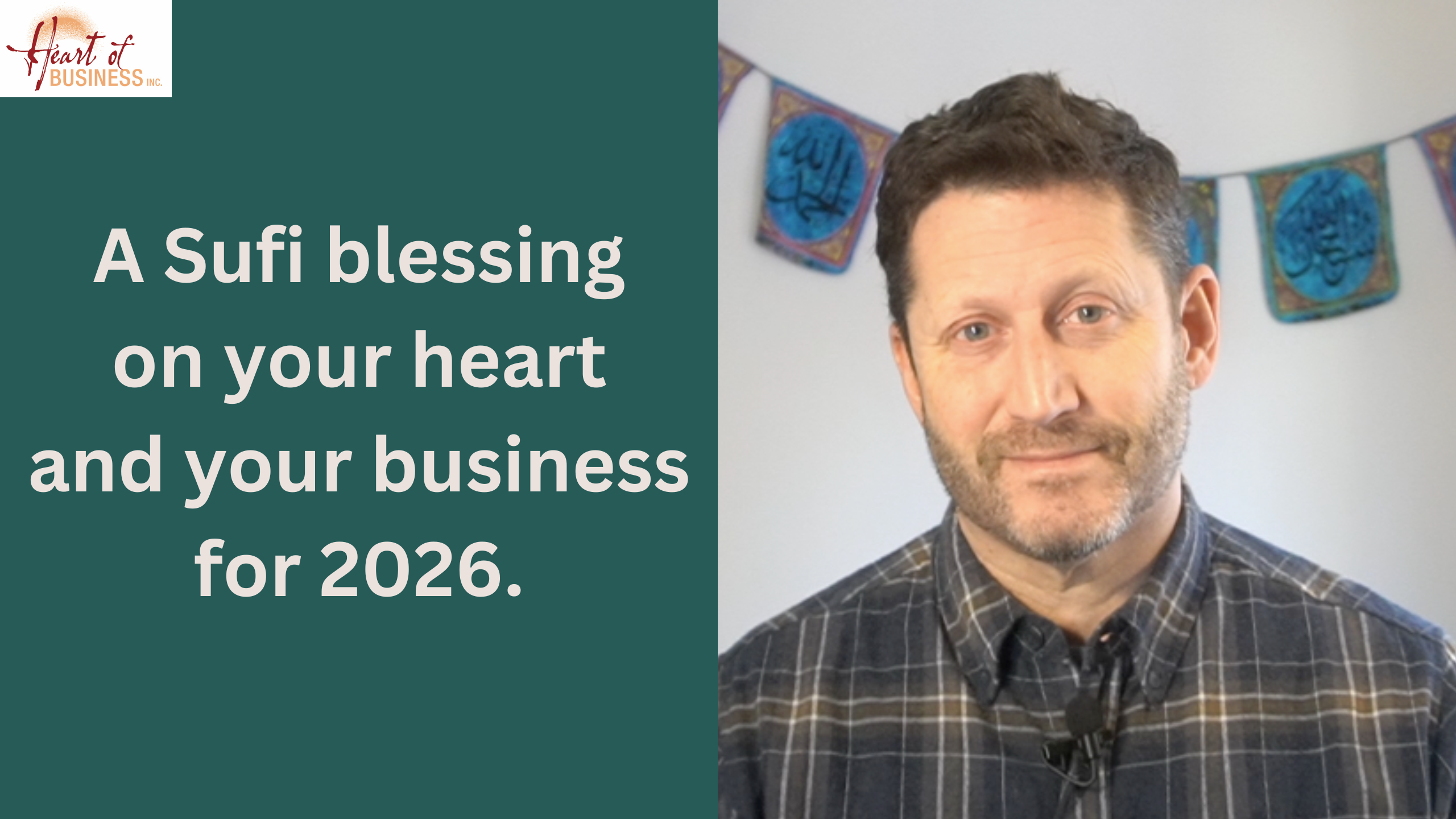In The Business Oasis, an earlier incarnation of our business Community, one of the members wrote: “I am unsure if it’s a good idea to include my fees in my brochure and on my website.”
Good question: do you or don’t you include your price? If you don’t include pricing, are you being coy and deceptive? Or, if you include your pricing, will someone who’s interested say “No” before they even have a chance to consider?
What happens when someone sees your price.
Well, what happens when you see a price? The price brings the whole idea of whatever the offer is into concrete, grounded here-and-now-ness. You see the price and all the dreams of what it will be like to have whatever the offer is, suddenly become real.
The price represents a choice point.
When you are reading a website, brochure, or what-have-you, you may not be ready to make a choice. And so when the price pops up, it’s reminding you that the choice is waiting.
Remember that the moment of purchase is a sacred moment- it’s a moment of great intimacy. Someone is giving to you, and you will be giving to them. Instead of them receiving your marketing, perhaps anonymously, suddenly it becomes a two-way relationship. That’s increased intimacy.
When someone is considering increased intimacy, they tend to have a lot of questions, and they want those questions answered before saying ‘Yes.’
Sounds like a great argument for hiding your prices?
Except it’s not. You see, if someone isn’t ready to make a choice, they’ll just glance at your price, take it in, and file it away for when they’re ready.
But, if someone IS ready to make a choice, or even just moderately close to ready, and your prices are hiding, there is no choice point. No here-and-now-ness to your offer. Your reader will begin to wonder: “What are they hiding? Can I afford it? Are they just trying to get me to call so they can do the hard-sell on the phone?”
The price is actually a lightening rod.
So, what happens in a prospective client is they have questions pop up while they are reading about your offer. Then, if those questions aren’t answered in your writing, the pressure builds. And builds.
And when the price pops up, all of that energy jumps, just like a bolt of lightening.
For instance, I may have a question about looking foolish in an art class. But, do I want to admit I’m worried about looking foolish? Maybe not. And, if not, then it’s much easier to say: “Well, heck, I ain’t payin’ that much for an art class.” When, that’s not actually true at all- I may well pay that, or more, for an art class, if I know I don’t have to look foolish.
It’s another one of those ‘both-and’ situations.
Yes, publish your prices. AND make sure you’re answering as many questions as possible.
Is that it? Just always publish your prices? What do you do?







19 Responses
When I go on a site I briefly see if they’re offering something I might be interested in, then I skip all the persuasion to see what the cost is. If the information is there I remember the site as a possibility. If the information is not there, I scratch them off my list.
Thanks, Jean- I think many people do this. I know I do it myself, as well.
It can seem scary to post your prices, but if many people are like you, and I think many of us are, it’s scarier not to post them.
If pricing information isn’t there, I’m gone. I don’t mind reading through good copy to get there, as long as it’s there somewhere.
As for your article — hooray! What a clear, concise and smart way to look at this issue, which is really the elephant in the heart-based small business room. Thank you.
You are right to frame the issue as coming down to dialogue, or making room for dialogue. Putting the price out as a potential barrier ends discussion. Not having prices makes the discussion scary and something to be avoided. And this whole thing is a tough subject because it brings up so much emotional gunk for people.
The funny (okay, not at all) thing is that I just recently addressed this very issue in writing for some of my clients and found it very challenging to write about. (fluentself.com/resources/pricing.html)
If I’d had your intelligent and thoughtful answer in front of me, it would have done the job perfectly. I’ll happily pass this on to all of my clients who can use this.
I’m glad it helped, Havi, and of course feel free to share it with anyone. It’s a tricky subject, and I’ve spent a LOT of time flopping around in it, determined to get a grip on it. Looks like where I’ve landed worked for you- I’m really grateful.
And, I liked your article- it was clear, and the story was great- it brings the point home. I have to say that I love your writing in general, Havi- both in the article and on your site. There’s a kinda… fluidity to it. 🙂
I generally agree Mark with all your points about publishing prices. I assume if the price isn’t published it’s because they don’t want to scare me off.
On the other hand, some products are pretty difficult to price – especially ones with a hands-on service component. So as a seller it feels like you are locking yourself into a price that might come back to haunt you.
Sometimes pricing has to be a bit “slippery” – when there are variables you can’t control or anticipate. Say, for instance, your ability to deliver on a project depends on your client providing you with specific information according to a pre-arranged schedule. And then the client doesn’t come through with the information on time, or what they give you is poorly prepared. I think most of us can relate to that experience.
Before I started doing internet sales when clients asked me “How much”, I would often say “Not much.” And then the real conversation would begin. But it’s hard to do that in a relatively impersonal “click and I’m gone” environment like online sales where everything must be neatly packaged as a “product”.
Hi Rick,
It’s a good point- custom services obviously can’t be quoted. And, if you are already in a conversation with someone face-to-face (or phone to phone), that can work really well.
I can also empathize with frustration that can come up when you can’t actually engage someone in a conversation- they click and go.
I think the parallel here is you may be thinking of the ‘click and go’ types as equivalent to that conversation- but that’s not entirely true. How many cold calls/follow-ups/etc, etc did you have to go through to actually get to that conversation?
The same process is needed for your click and go folks. They need to build trust before they can click.
And, I definitely take your point about not underselling yourself, and getting into an unprofitable situation, if you can help it.
The two different situations where this applies, there are still ways around it. One situation, where the service is fairly standard, but has an element of depending on the client to deliver, all that gets explained before any contracts are signed or money exchanged. Putting a price up on the website isn’t going to make you liable, signing an agreement will. And the agreement can contain any stipulations needed to make the arrangement work.
As far as custom work goes, it’s true you can’t quote a price. But, how many people in that situation list prices from previous projects? And listing variables that are involved in the pricing?
Remember, the idea is to help someone feel safe enough to take the next step. The more information you can provide, the easier that step will be for them to take.
thanks again- I believe that those engaged conversations are still waiting to happen- and with the internet, it can actually be easier to create trust with someone ahead of time, to actually get to the conversation, more than 1,000 cold calls, trying to get past voicemail and gatekeepers.
Thoughts?
Mark,
Nice article. What I found interesting though, is that I could not find your prices on your site at all–only prices for your retreat. Are they not listed or did I miss them?
Bwaahhhahahah- do as I say, not as I do…
Actually, all of my product/services pages have the prices out there.
My individual services page.
My marketing class page.
etc, etc…
I have a follow up question:
How do you feel about listing addenda and conditions? For example –
“Concessional rates may apply to pensioners, unemployed and full time students. Proof of concession required”.
Or does this open up a can of worms (“Hey…how come *they* can get discounts? I want a discount too!”)
.-= Bob s´s last blog ..test 5 =-.
@Bob- Great follow-up question. I would be -really- spare about additional details, because it can be overwhelming. When someone is in the process of actually becoming a client, you can give them the details.
Having said that, I think it’s okay if you say that you do have a limited number of reduced fee spots for certain groups. I think for any sane person it’s fairly obvious. I don’t feel upset that Apple offers an educational discount to full-time students. I’m glad for the students.
I work in multiple currencies, as I am an expat, so this is why I didn’t publish my prices. It seemed logical as Swiss prices are so much higher than UK/USA coaching prices.
BUT
What you said really resonated with me, and I have just changed my site: ta da! Prices are up – it feels a very vulnerable place to be in, but this is what people need to see.
Heart felt thanks,
Tammy
The Freelancer’s Coach
Hi Tammy- it’s a brave step- good on you for taking it! And, if you remember, feel free to check back in and let us know how it goes.
I’ve recently been wrestling with this question. I don’t have prices up on my site because mostly I customize programs for my clients. But I’m starting to feel that A) too many customized agreements becomes far too overwhelming to keep track of, and B) people would probably have an easier time engaging with a specific offer than with a more open-ended one. So I’m working on packaging my services in some new ways. I will still leave it open for people to request a custom-designed program if that suits their needs better, but I’m going to experiment with encouraging people to go with packages as much as possible. It will make it easier on my business and I have the feeling it will make it logistically easier and emotionally safer for people to engage.
I’d love to hear your thoughts when you have a moment, Mark. Thanks for this great article! As always, just the inspiration I need, just when I need it. Even when it’s years after the original publication. 🙂
mandy
I totally agree – if you hide your prices, there’s no way for them to make a clear choice. It becomes a muddled choice, because if they want to say yes, they have to choose to act in muddledness (to contact you, even though they’re a ‘maybe’). And that puts many people into fear
Seeing this post on your site tonight was another synchronicity. Because earlier today on Facebook, coincidentally, I posted this:
“What do you think of putting coaching prices on your website? I’ve noticed that a lot of high-end coaches do not, while I am very committed to having the information openly available before people contact me. I’ve also had some experiences with consultations with coaches who did not publish this info, and I have some opinions about it, but I’m curious your take on it?”
Then, in response, someone posted:
“I think its says alot about transparency. A coach that is willing and able to be transparent in that way is valuable. There is a certain type of “game” that is played in not just putting all the info out there. THough I understand the idea behind not putting prices, its seems to lack integrity to me. If a persons believes in their value and worth they have no issue putting there fees out there.”
And I responded and further explained my perspective on this and why all my prices are clearly posted:
“Yeah, transparency is one of my favorite values 🙂 When people sign up for my coaching packages, I want them to be doing it with eyes wide open, knowing exactly what they are going to invest and what is included in that investment. I do not like the ethos of being having a “free consultation” with a coach and having them spring the price on me during the call and then expect an instant answer from me. It has a vibe of “well, you accepted the ‘free’ consultation so now you’re going to sign up for this $20k package even though you had no idea what you were getting into, right?” To me, it’s lacking in respect and forthrightness.
“Also, if the customer doesn’t get to see everything clearly in writing beforehand, they are not in as good a position to ask informed questions about the program. And frankly our time is valuable. Let’s not even have a consultation about it unless you know the details in advance and are still sincerely interested.”
Greetings! This is my first visit to your blog!
We are a group of volunteers and starting a new project in a
community in the same niche. Your blog provided us useful information to work
on. You have done a marvellous job!
Really no matter if someone doesn’t know then its
up to other viewers that they will help, so here it occurs.
Find perfect supplies for your home renovations and repairs on reputable retailers in the market.
If you might have just decided on an poker online play try not to understand how to come up with a deposit in an internet poker
room, than the article will prove quite great for you. It will take some
time because of this to be associated with a help; at least
a month. Many top players advise against multi-tabling in any respect,
especially inside case of new players, who ought to be focusing intently on studying the players at their table, and paying close
focus on everything that happens.